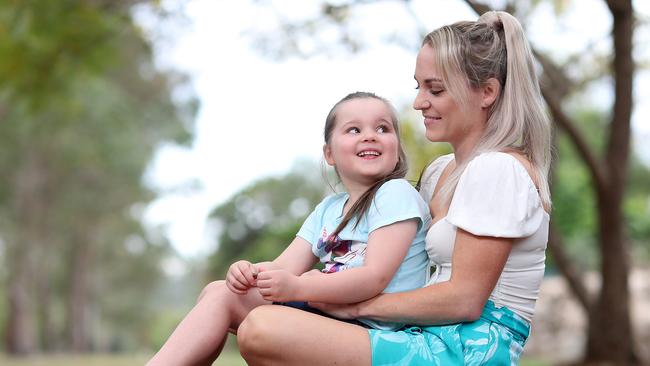Queensland Health rolls out training to make hospitals safer for patients with allergies
Six-year-old Chloe Hendersen was in a hospital when she was served an egg for breakfast, despite having an egg allergy. It could have proved fatal. Such mistakes make hospitals one of the most dangerous places for people with allergies.

QLD News
Don't miss out on the headlines from QLD News. Followed categories will be added to My News.
Queensland Health is rolling out new training for food service staff amid claims that hospitals are one of the most dangerous places for people with allergies.
Meal mix-ups and contamination are causes of potentially deadly anaphylactic attacks for unsuspecting patients and a new training course has been launched by the National Allergy Strategy, a partnership between the Australasian Society of Clinical Immunology and Allergy (ASCIA) and Allergy & Anaphylaxis Australia (A & AA).
The project has been funded by the Australian Government Department of Health. Queensland hospitals have already been working closely with the National Allergy Strategy (NAS) training modules and will add this new course to the training already provided to Queensland Health Food Services staff.

“Patients with a food allergy are more vulnerable when they are in hospital, particularly for unexpected stays,” Dr Preeti Joshi, a paediatric clinical immunology/allergy specialist and co-chair of the National Allergy Strategy said.
“They rely on hospital staff to provide them with safe meals, but unfortunately many people report being served meals containing the foods they are allergic to, despite telling multiple hospital staff about their food allergy.”
Allergy & Anaphylaxis Australia chief executive Maria Said and co-chair of NAS said many hospitals “concerningly” did not have adequate practices in place.
“People understandably assume that their food allergies are going to be managed well in a hospital environment because they see hospitals as a safe place,” she said.
“Until the death of 13-year-old Louis Tate in 2015, only a few hospitals in the whole of Australia had a food allergy policy,” she said.
“Tragically, Louis’ death was preventable and we know that even since losing him, there have been other incidents in hospitals that have been near-misses.”
Louis Tate had a severe anaphylaxis attack after he ate a spoonful of the breakfast he was served. This was despite the fact that his mother had communicated Louis’s food allergies multiple times. His family want hospitals to have robust policies and processes in place for providing appropriate foods to patients with food allergy.
Brisbane six-year-old Chloe Henderson had a near-miss when she was served a boiled egg in an interstate hospital, despite having an egg allergy.
“She had an anklet on warning of her allergy, an alert behind her bed and notes in her records, but was served the meal while in hospital for the croup,” mum Eva said. “Luckily she was clued in enough that she didn’t eat the egg, but it was a shock as we thought everything was in place to keep her safe.”
Australia has one of the highest incidences of food allergy in the developed world with about one in 10 infants, one in 20 children (aged 10-14 years) and one in 50 adults affected. The most recent data shows that food-induced anaphylaxis doubled between 1999 and 2012 and fatalities from food-induced anaphylaxis increased by about 10 per cent each year between 1999 and 2012.
Dangers for patients with allergies
*Staff not understanding the seriousness of food allergies.
*Information about a patient’s food allergy not being communicated effectively
* Not having adequate alerts in place
*Poor food handling and cleaning practices in the kitchen
*Poor storage and labelling systems in the kitchen
* Food preparation staff not following standard recipes
* Meals being mixed up or contaminated with ordinary meals.
*Staff being unable to provide accurate information about the ingredients
* Nursing staff not matching the patient’s name on the wristband to the name on the meal tray

